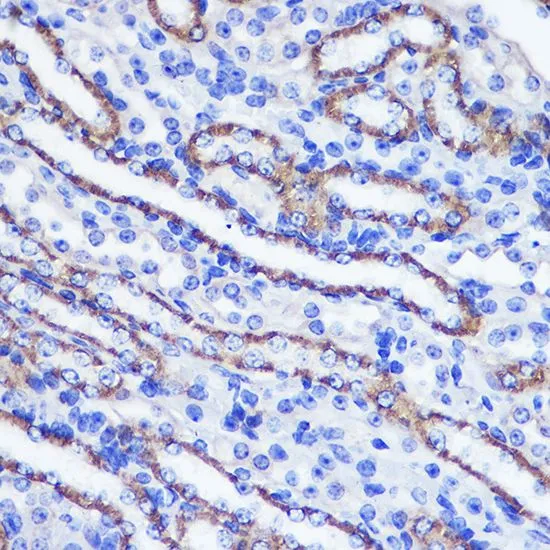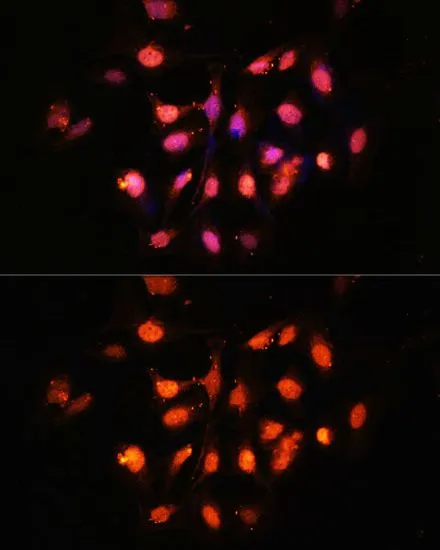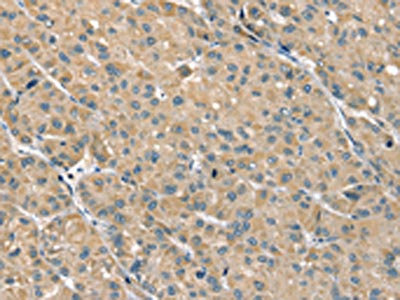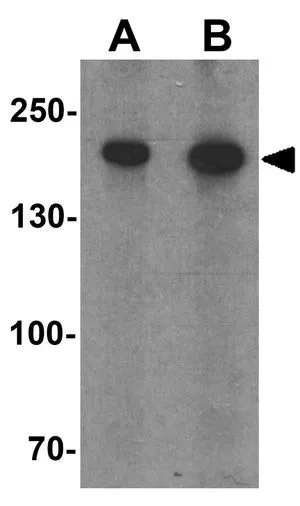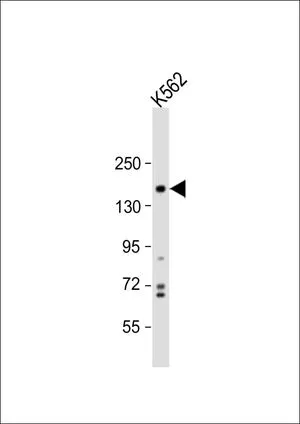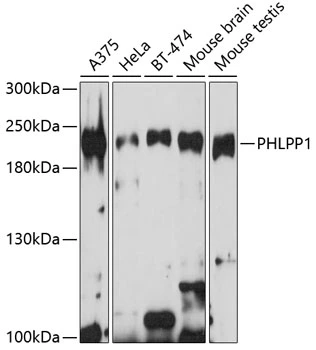
WB analysis of various sample lysates using GTX64568 PHLPP1 antibody. Dilution : 1:1000 Loading : 25μg per lane
PHLPP1 antibody
GTX64568
ApplicationsImmunoFluorescence, Western Blot, ImmunoCytoChemistry, ImmunoHistoChemistry, ImmunoHistoChemistry Paraffin
Product group Antibodies
ReactivityHuman, Mouse
TargetPHLPP1
Overview
- SupplierGeneTex
- Product NamePHLPP1 antibody
- Delivery Days Customer9
- Application Supplier NoteWB: 1:500 - 1:2000. ICC/IF: 1:50 - 1:200. IHC-P: 1:50 - 1:200. *Optimal dilutions/concentrations should be determined by the researcher.Not tested in other applications.
- ApplicationsImmunoFluorescence, Western Blot, ImmunoCytoChemistry, ImmunoHistoChemistry, ImmunoHistoChemistry Paraffin
- CertificationResearch Use Only
- ClonalityPolyclonal
- ConjugateUnconjugated
- Gene ID23239
- Target namePHLPP1
- Target descriptionPH domain and leucine rich repeat protein phosphatase 1
- Target synonymsPHLPP, PLEKHE1, PPM3A, SCOP, PH domain leucine-rich repeat-containing protein phosphatase 1, PH domain-containing family E member 1, SCN circadian oscillatory protein, pleckstrin homology domain containing, family E (with leucine rich repeats) member 1, protein phosphatase, Mg2+/Mn2+ dependent 3A, suprachiasmatic nucleus circadian oscillatory protein
- HostRabbit
- IsotypeIgG
- Protein IDO60346
- Protein NamePH domain leucine-rich repeat-containing protein phosphatase 1
- Scientific DescriptionThis gene encodes a member of the serine/threonine phosphatase family. The encoded protein promotes apoptosis by dephosphorylating and inactivating the serine/threonine kinase Akt, and functions as a tumor suppressor in multiple types of cancer. Increased expression of this gene may also play a role in obesity and type 2 diabetes by interfering with Akt-mediated insulin signaling. [provided by RefSeq, Dec 2011]
- ReactivityHuman, Mouse
- Storage Instruction-20°C or -80°C,2°C to 8°C
- UNSPSC41116161

